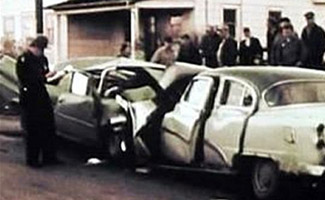Events
Exploring the Fusion: Crash Games as Art in a Contemporary Gallery
Picture this: a gallery pulsating with the energy of F777 Fighter, the cosmic allure of Space XY, and the adrenaline rush of Need for X. Can crash games be more than just pixels on a screen? Can they transcend the digital realm and materialize as captivating art installations in a contemporary gallery space? Let’s dive into the exciting realm of possibilities.
Crash games, with their dynamic visuals and interactive nature, possess the potential to become immersive art experiences. Imagine F777 Fighter translated into a kinetic sculpture, where the crashes manifest as explosive bursts of color and sound, echoing the intensity of the digital game.
Space XY, with its cosmic theme, could transform a gallery into an otherworldly environment. Picture visitors navigating through a celestial landscape, interacting with installations that mirror the unpredictability of the crash game, creating an unforgettable sensory experience.
Need for X, known for its high-speed thrills, might find its material form as a multi-dimensional installation. Visitors could step into a space where the speed and crashes are tangible, blurring the lines between virtual and physical realities.
- Interactive Exhibits: Allow gallery-goers to engage with the crash game experience physically, triggering crashes and exploring the consequences in real-time.
- Visual Spectacle: Harness the vivid graphics and themes of these games to create visually stunning installations that captivate and challenge perceptions.
- Soundscapes: Consider incorporating dynamic sound elements that respond to the crashes, enhancing the immersive quality of the installations.
In the fusion of crash games and contemporary art, the possibilities are as boundless as the digital landscapes they draw inspiration from. The challenge lies in translating the essence of these games into tangible, material forms that captivate and resonate with gallery visitors. Could crash games be the next frontier in pushing the boundaries of what we perceive as art? The journey into this uncharted territory is as thrilling as the crash itself.
Event Information:
-
Fri25Apr2014
'School of Shock' Classroom Safety Films Lecture & Screening at Dead by Dawn!
Filmhouse, Edinburgh ScotlandThe Miskatonic Institute of Horror Studies presents
SCHOOL OF SHOCK: PAIN AND PLEASURE IN THE CLASSROOM SAFETY FILM
Presented by Kier-La JanisseFriday April 25, 2014
Dead by Dawn Horror Film Festival
Filmhouse - 88 Lothian Rd.Edinburgh, Scotland
www.deadbydawn.co.ukFor many genre fans, a love affair with horror and the grotesque began early on, sometimes fuelled by unlikely sources. One of these was the classroom safety film, which for many kids was their first time seeing other children threatened by true danger, being confronted with a combination of gore effects and actual accident footage, and being offered a pictorial glimpse at things their parents didn’t want to talk about. Thousands of these films were made in North America from the 1940s through the 1980s, when companies like Centron, McGraw-Hill, Coronet, Encyclopaedia Britannica Films, Avis Films, Crawley Films, Bell Labs, the NFB and others thrived on the burgeoning market for classroom or workplace educational films.
Subjects ranged from safety in and around vehicles, to drug abuse and venereal disease, teaching children scary lessons about everything from dental hygiene to how to spot a pedophile. The most memorable of these films deliberately used horror visuals to entice and/or shock children into paying attention – such as those by prolific producer Sid Davis (1916-2006) - and some were even made by directors with genre film pedigrees, such as Herk Harvey of Carnival of Souls, William Crain of Blacula and Dr. Black and Mr. Hyde, and cinematographer Douglas Knapp, who later shot John Carpenter’s Dark Star and Assault on Precinct 13.
This lecture and screening will present some of the most notorious educational films of the 40-year golden age of social hygiene onscreen. We’ll also briefly look at educational television PSAs, from the British Public Information Films through the incredibly grisly Australian drunk driving commercials of the 1990s.
The classic ‘era’ of classroom films may be over, but viewed from today’s perspective, some of these films offer up a fascinating survey of changing social mores and cultural preoccupations (not to mention fashions!). Being safe has never looked so grim.
WARNING: This program contains graphic imagery, including real accident and casualty footage.
Program length: 120mins.




Steve Smith commented on THE BIG BANG: The too-short career of actress JOY BANG
As I type this, I'm watching "Messiah of Evil"...
Hyacinth commented on THE BIG BANG: The too-short career of actress JOY BANG
I'd be interested in her Hollywood memoir. ...